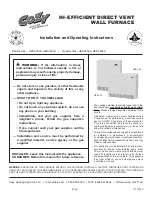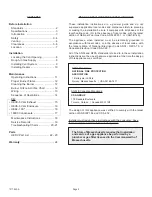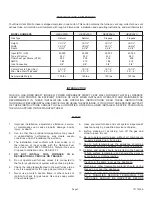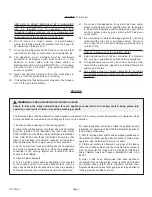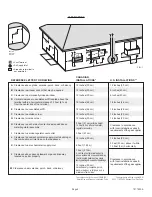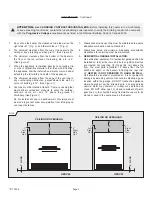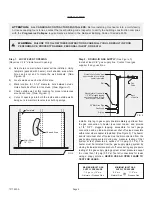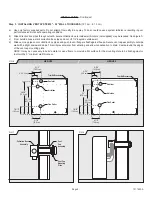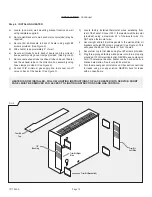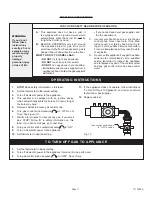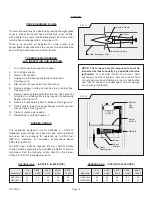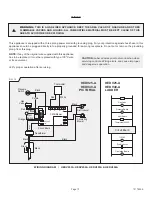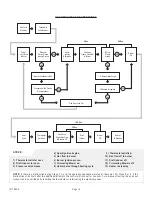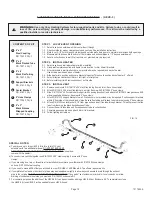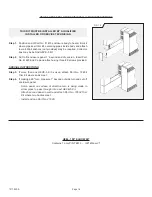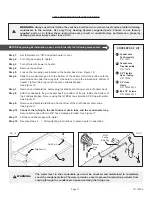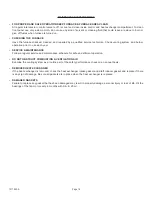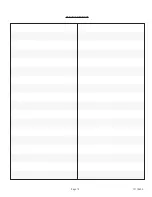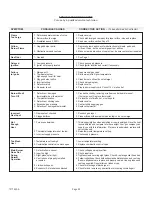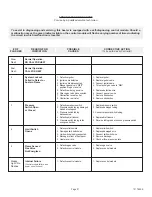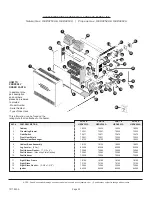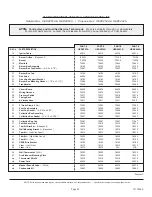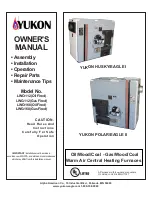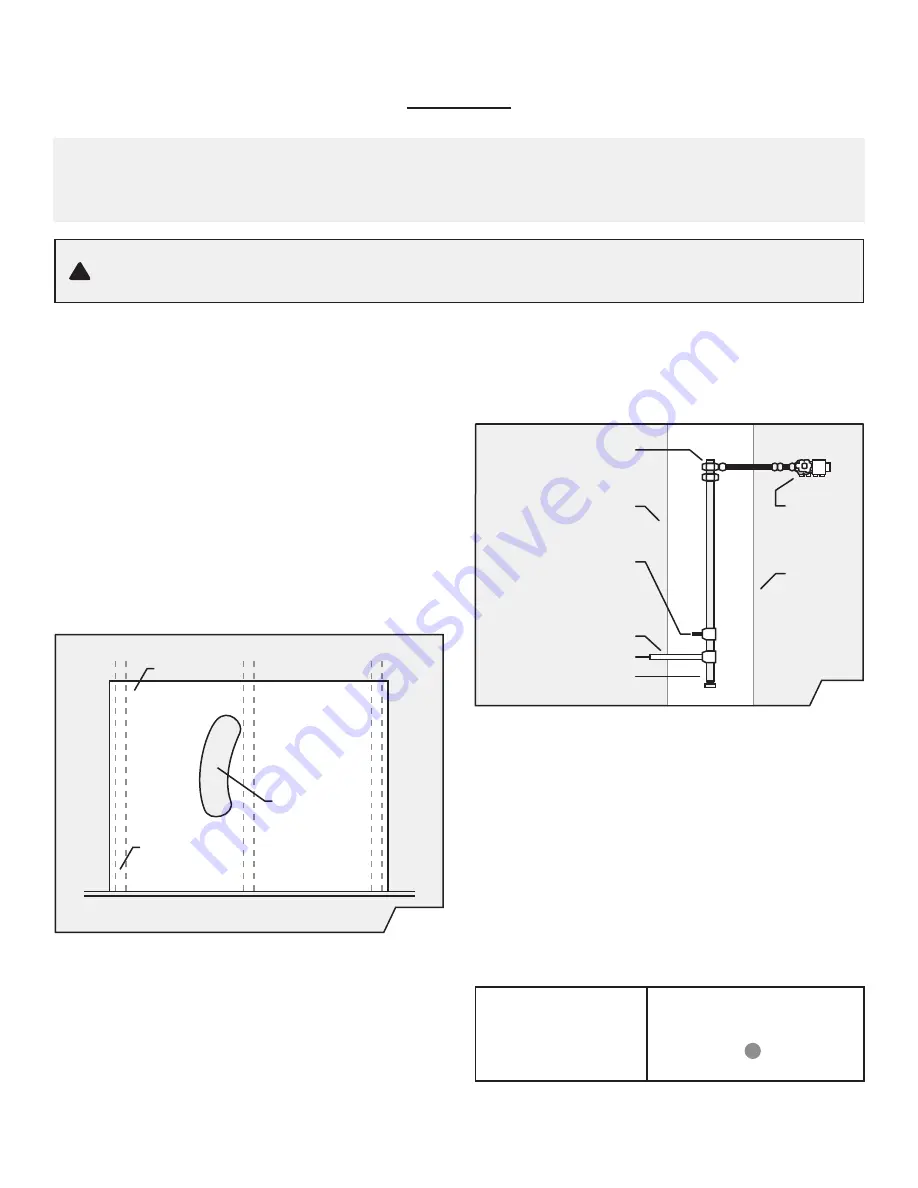
1017952-A
Page 8
FIG. 4
INSTALLATION
ATTENTION:
ALL CANADIAN CONTRACTORS/INSTALLERS:
Before installing this heater into a multi-family
hi-rise exceeding four stories, contact the local building code inspector to verify the building construction complies
with the
Progressive Collapse
requirements as listed in the National Building Code of Canada 2005.
!
WARNING:
FAILURE TO FOLLOW THESE INSTRUCTIONS CAREFULLY COULD RESULT IN POOR
PERFORMANCE, PROPERTY DAMAGE, PERSONAL INJURY, OR DEATH.
Step 1.
LOCATE VENT OPENING
(Requires 3-1/2” diameter wall opening).
a) Select area on wall where heater will be installed. Using
template (packed with heater) mark shaded area where
hole can be cut and to locate the wall brackets.
(See
Figure 4).
b) Locate studs on each side of this area.
c) Mark location for 3-1/2” diameter hole between studs.
Hole should be offset to miss studs.
(See Figure 4).
d) Check outside wall at this location for proper clearances
around vent cap.
(See Figure 1).
e) Cut vent openings into both the inside and outside walls,
being sure to maintain level across both openings.
Step 2.
ROUGH-IN GAS SUPPLY
(See Figure 5)
Install at least 3/8” gas supply line. Contact local gas
supplier if any questions.
Template
Wall Studs
16” O.C.
Shaded Area
FIG. 5
Manual shut-off valve must
be accessible in room where
heater is installed
Manual shut-off valve with
1/8” NPT plugged tapping
must be accessible in room
where heater is installed
Gas
Valve
Gas Supply
Drip Leg
Wall
3/8” Black Iron Pipe
Back
of Heater
Install a drip leg in gas supply line immediately upstream from
the gas connection to heater (see local codes), and provide
a 1/8” N.P.T. plugged tapping, accessible for test gauge
connection and an individual manual shut off valve accessible
within room where heater is installed.
(See Figure 5
). The heater
and its individual shut off valve must be disconnected from the
gas supply piping system during any pressure testing of that
system at test pressures in excess of 1/2 psig (3.5 Pa). The
heater must be isolated from the gas supply piping system by
closing its individual manual shut off valve during any pressure
testing of the gas supply piping system at test pressures equal
to or less than 1/2 psig (3.5 Pa). Test all connections for leaks
using a soapy solution.
NEVER USE AN OPEN FLAME TO
TEST FOR LEAKS.
MAXIMUM INLET GAS
SUPPLY PRESSURE
1/2 p.s.i. or 14” w.c.
Natural or Propane Gas
MINIMUM INLET GAS
SUPPLY PRESSURE
4.5” w.c.
Natural Gas
11.0” w.c.
Propane Gas
or


